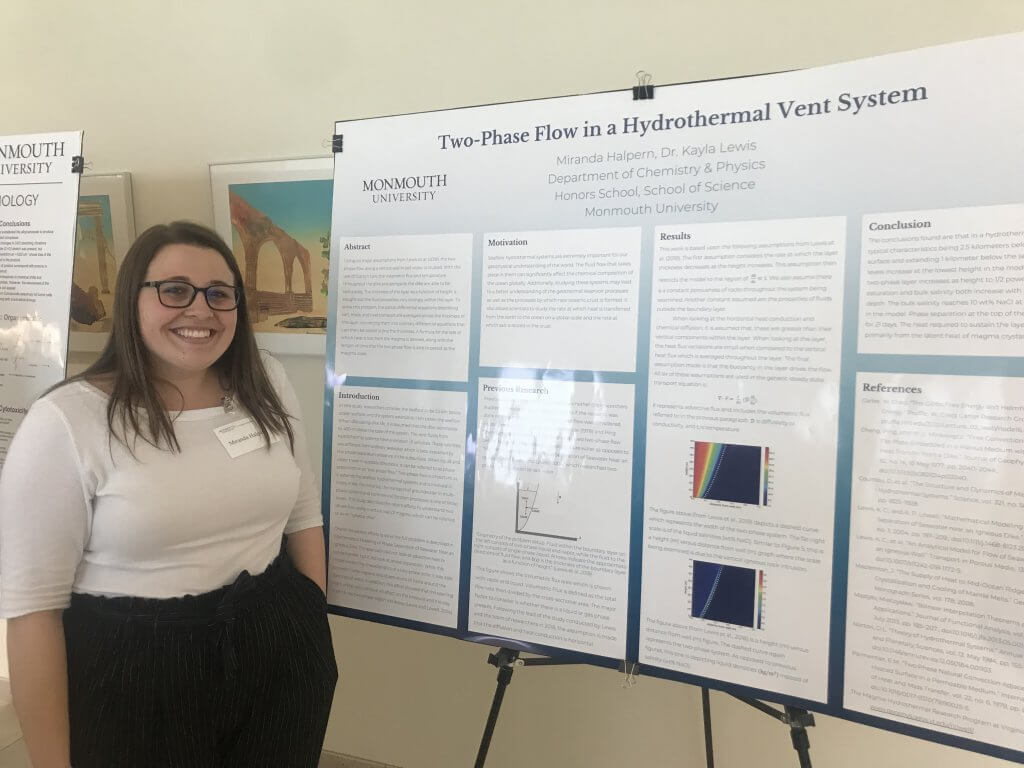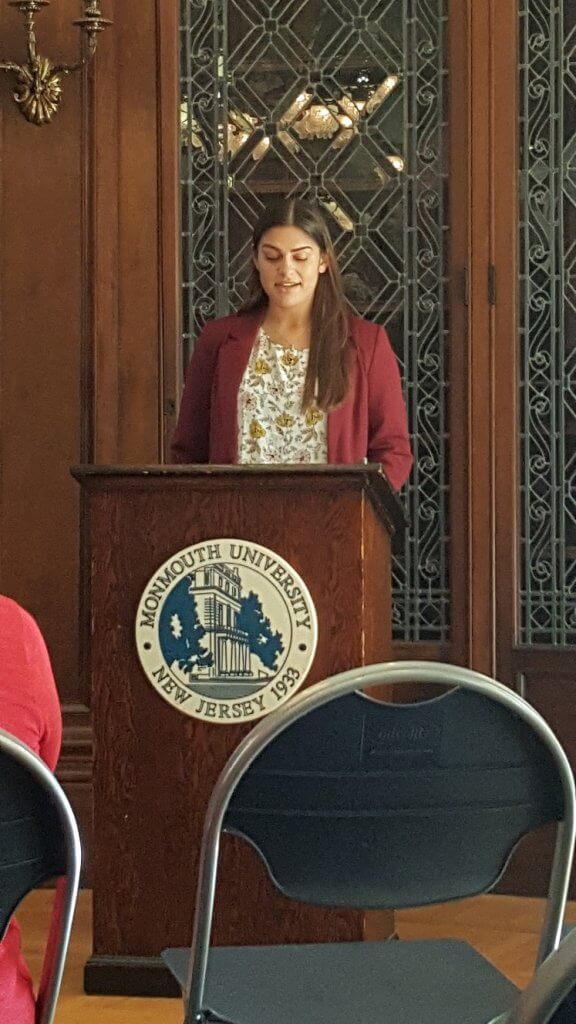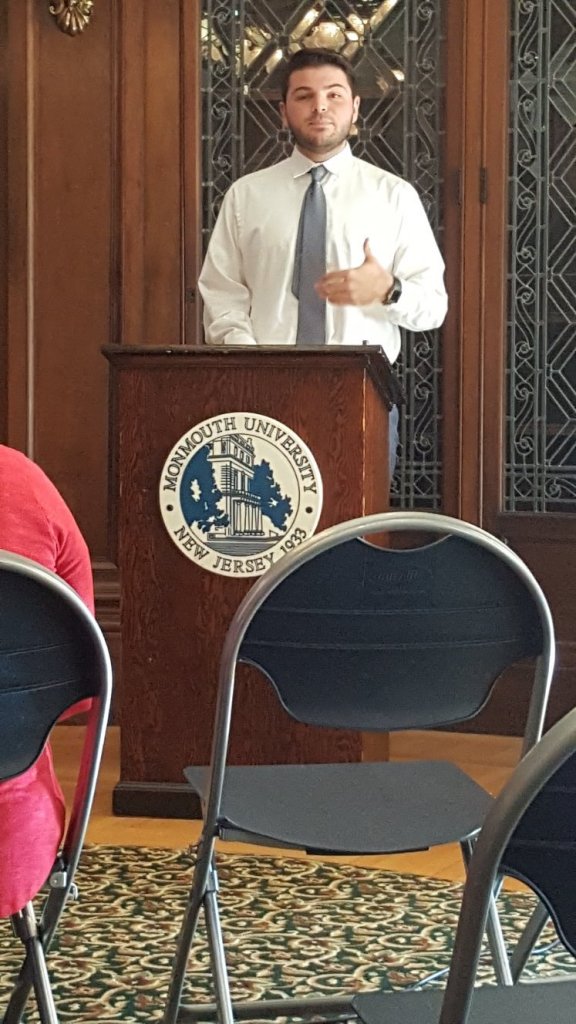Warner Music Group and Chevron internships for Emily Tumbaco
In March 2022, Emily Tumbaco will be starting a spring internship at Warner Music Group as a Technical Project Manager under WMG’s Global Technology Group. This internship program is a part of Warner Music Group’s Emerging Talent Associate program. Additionally, in May 2022 she will be starting another internship at Chevron Corporation as a Data Science intern. She was able to interview and accept the internship through the GEM Fellowship program. The GEM Fellowship allows students who are interested and have applied to graduate program to gain industry experience through partner companies, while granting financial support. Emily is also in the process of choosing a graduate program in Data Science to attend this Fall 2022. These internship experiences will provide Emily with important interpersonal and technical skillsets in both growing fields.
Summer Internship Programs at NSA
The NSA has summer opportunities for undergraduate and graduate students majoring in mathematics or statistics. For information, check out this handout.
Dalton and Verni Complete SRP
Mackenzie Dalton, a 2020 mathematics graduate of St. Michael’s College in Vermont, and Olivia Verni, an MU mathematics sophomore, recently completed summer research projects under the mentorship of Dr. Joe Coyle and Dr. David Marshall, respectively. Dalton and Coyle worked on “Employing Thresholding And Wavelet Transformation To Remove Noise From An Audio Signal,” while Verni studied “Cubic Comparability Graphs” with Marshall. Both presented their work at the SRP Symposium on August 6, 2020.
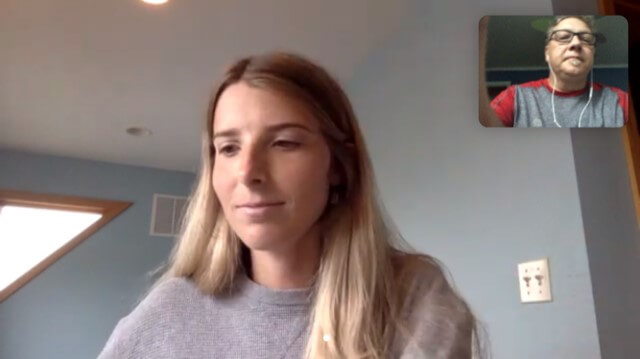
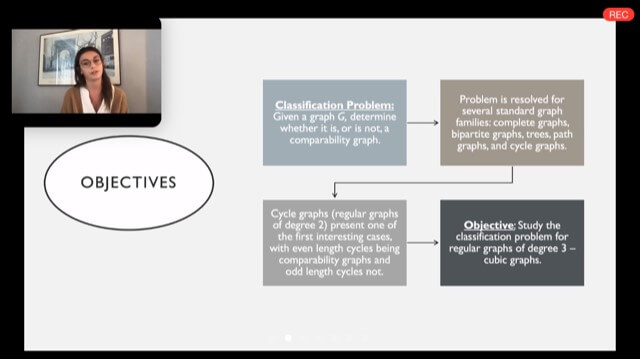
Meet Dr. Darmon’s Summer 2020 Student Research Team
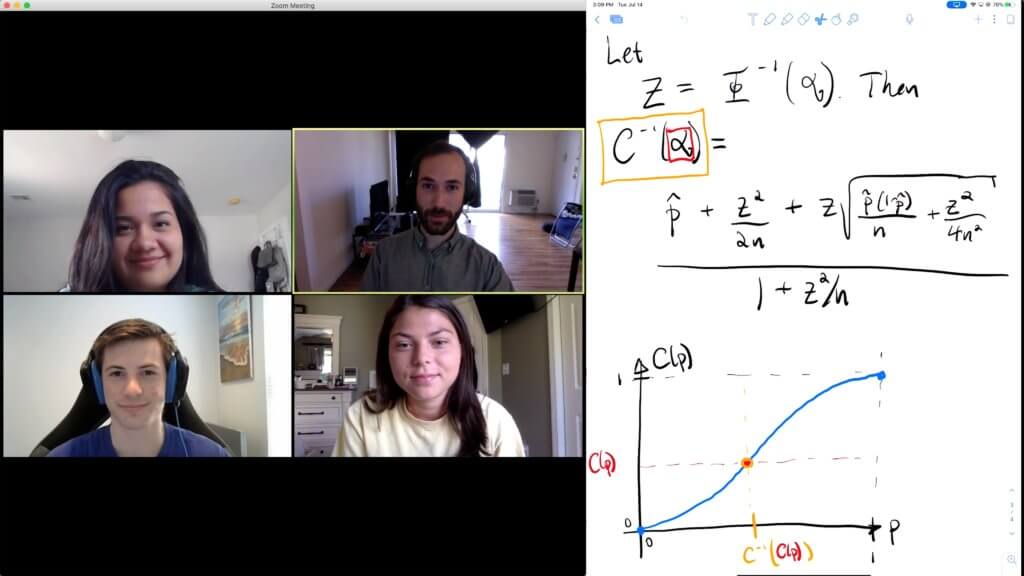
Since early June, three of our own mathematics students have been working with Dr. David Darmon on his 2020 SRP project, Confdist: Development of an R Package for Statistical Inference with Confidence Distributions. As pictured above, the group had to begin their work together in Zoom format, but loosening restrictions are allowing the team to come together on campus for in-person, socially distant work sessions for the last couple weeks of the program.
Project Abstract:
A reproducibility crisis is brewing in the application of statistics to medicine and the social sciences. The reproducibility crisis has many causes, including P-hacking, the garden of forking paths, and the file drawer effect. Much of the blame for the reproducibility crisis has been heaped on P-values and their abuses. Confidence intervals have been proposed as a supplement or alternative to P-values. However, even confidence intervals suffer from the pre-assignment of a default coverage level, typically 95%, and thus fall into the same trap as using the standard 0.05 cutoff for statistically significant versus non-significant estimates.
Confidence distributions provide a straightforward and readily graspable way to extract all of statistical information that can be inferred from a given data set under a given model, including point estimates, confidence intervals, and P-values. The theory of confidence distributions is well-developed, and the practical aspects of their implementation with many commonly used models has reached maturity. However, without readily available and user-friendly software for generating confidence distributions from data, confidence distributions will likely remain outside the toolkit of practicing scientists who lack extensive training in mathematical statistics.
During this project, students will design statistical software in R to construct confidence distributions for a diverse set of statistical procedures. This software will be validated using real world data sets. Over the course of the summer, students will gain skills in statistical inference, numerical analysis, and software development that will serve them well in any future endeavor in the applied sciences.
The Classroom Comes to Life During Summer Internships
Junior Brenda Dreisbach and senior Jett Vernaci had amazing experiences this summer as interns at Benjamin Moore & Co., and Willis Re, a division of Willis Towers Watson, respectively.
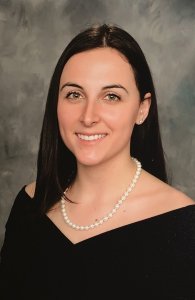
This summer I completed a 13-week internship as part of the pricing team at Benjamin Moore & Co. I had many assignments that involved creating reports by analyzing data on some of the different promotions the company offered. I was most excited to work with R-Studio, a coding software, creating cluster models for machine learning projects. Seeing how to analyze data from two different perspectives really opened my eyes to all the employment possibilities that I can attain being a math major with a concentration in statistics. When I came back to school and told my professors about what I had learned over the summer, they immediately suggested I sign up for a new class that will be offered on R-Studio. I am most thankful for Monmouth’s math department because the professors have always had my best interests in mind.
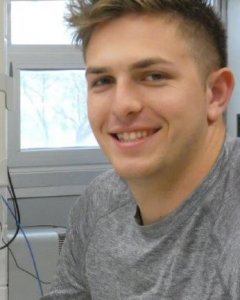
My internship in the actuarial department of Willis Re this summer was one of the best experiences of my life. It taught me how to take complex data and consolidate it into nice, compact exhibits that are easy to read. It also taught me how to run experience and exposure analyses, given a client’s data, to get an idea of the risk factors associated with the client’s particular line of business. In addition to being challenging, the internship was also a very fun experience and I made many connections. I learned more than I ever thought I would at a summer internship.
Summer Research Job? Check.
Junior Samantha Cavalli didn’t work at the mall or a fast food restaurant this summer. She found employment with the MU School of Science’s Summer Research Program (SRP) as the statistician for three teams of biology students working with Dr. Pedram Daneshgar. Through several experiments, data collections and observations, Cavalli and her fellow student researchers studied the likelihood of certain types of trees to fall during an extreme weather event; the conditions in which the red mangrove, a globally threatened plant species, is able to thrive and reproduce; and the effect of “salt stress” on various types of trees in the maritime forest. As the only math major on the team, Cavalli used her expertise in statistics to analyze all the data, which in turn, allowed the team to come up with evidence-based conclusions and recommendations for each of the three research problems. According to Cavalli, “The most valuable thing I got out of the experience was being able to contribute the design process of the experiment and data collection. I was able to use my knowledge in ways I didn’t expect and make contributions to the team. Not only did I have fun working hands on in the field, but it also allowed me to have an even better understanding of the data analyses and results, which provided my team with vital conclusions and recommendations about each of the projects.”
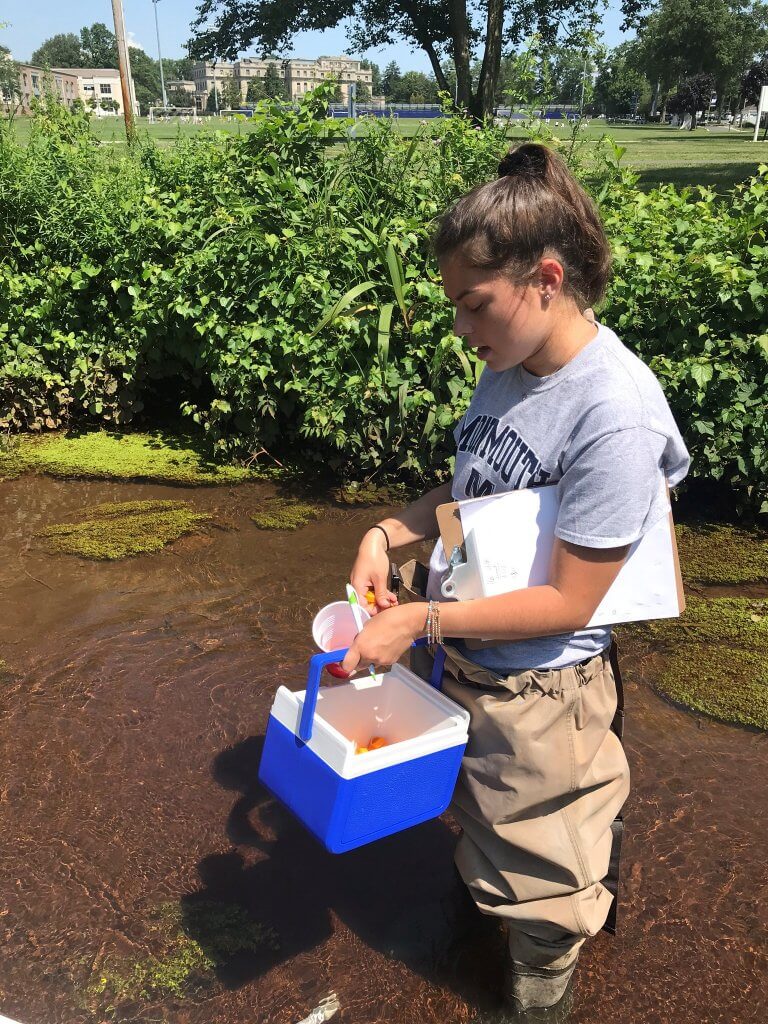
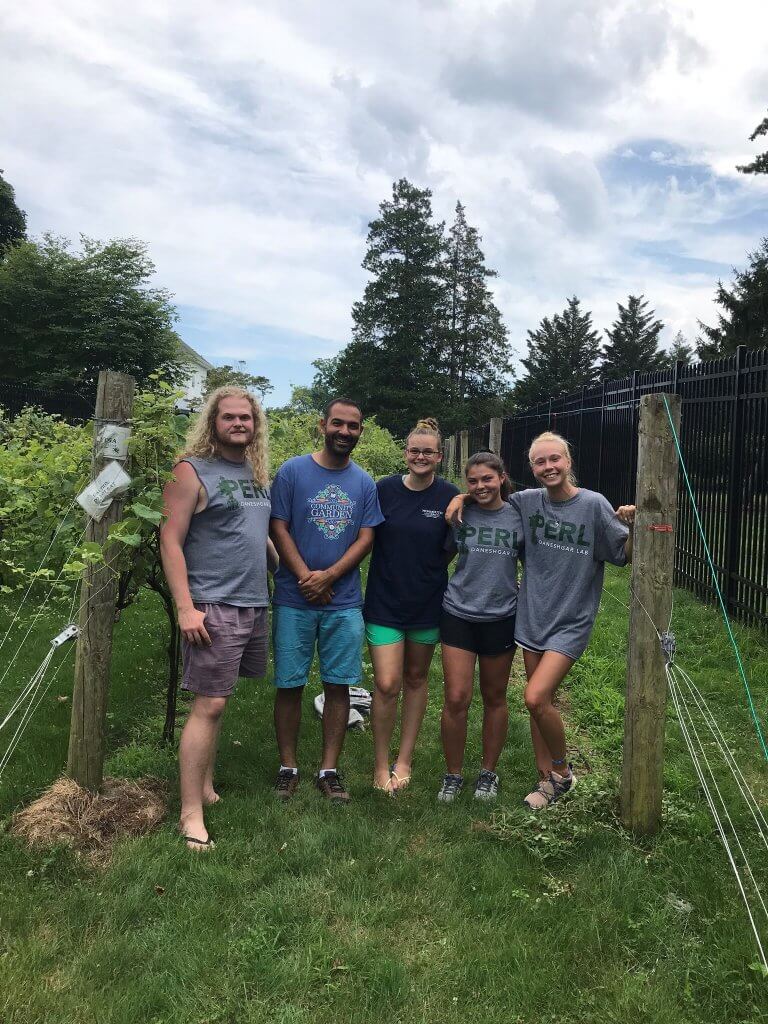
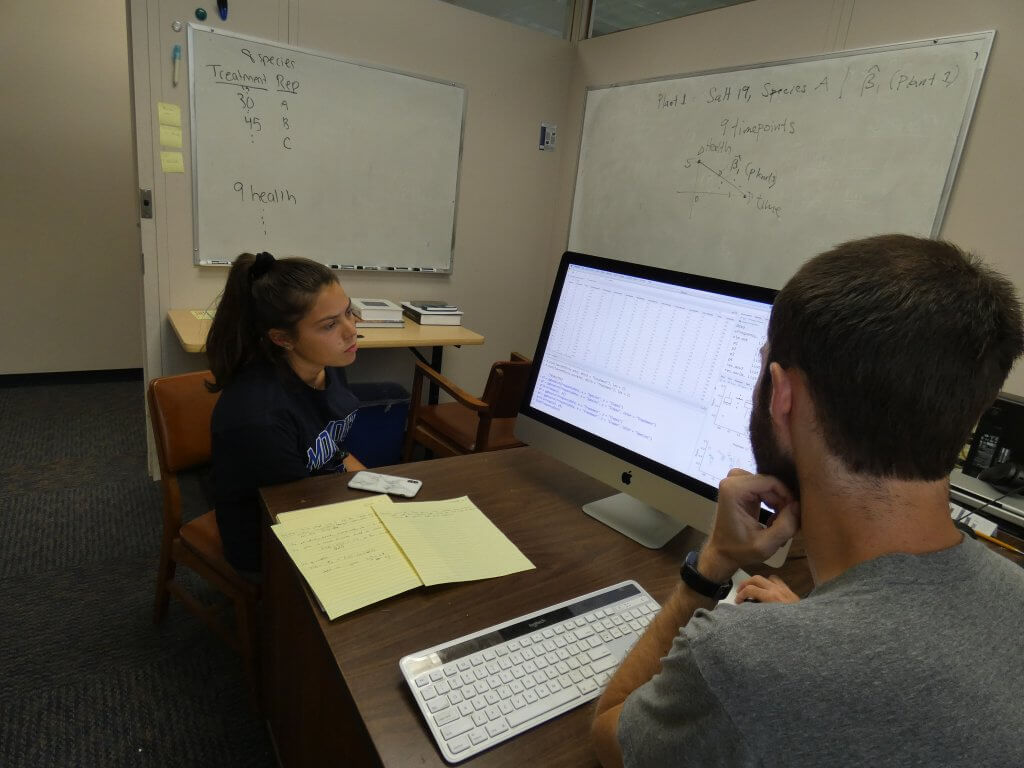
Math Students Present at Annual Student Research Conference
Students from across the School of Science gathered during Scholarship Week for the annual Student Research Conference on April 26, 2019. Teams of students from Dr. Rich Bastian’s Statistical Consulting class created posters detailing their work over the course of the semester with external clients. Bastian’s students interviewed their client, translated client needs into statistical language, designed statistical experiments, generated data collection plans, collected and analyzed data, interpreted their analyses, and presented their findings to the client. Depending upon client needs, students utilized methods including power and sample size considerations, multiple and logistic regression, survival analyses, t- and chi-square tests, ANOVA/MANOVA/ANCOVA, and principal component analysis. Kristen Marzano and Samantha Cavalli won the Dean’s Award of Excellence in Undergraduate Research in Mathematics for their project, “Statistical Analysis of White Blood Cell Count and CCL and Meniscus Tears in Canines.”
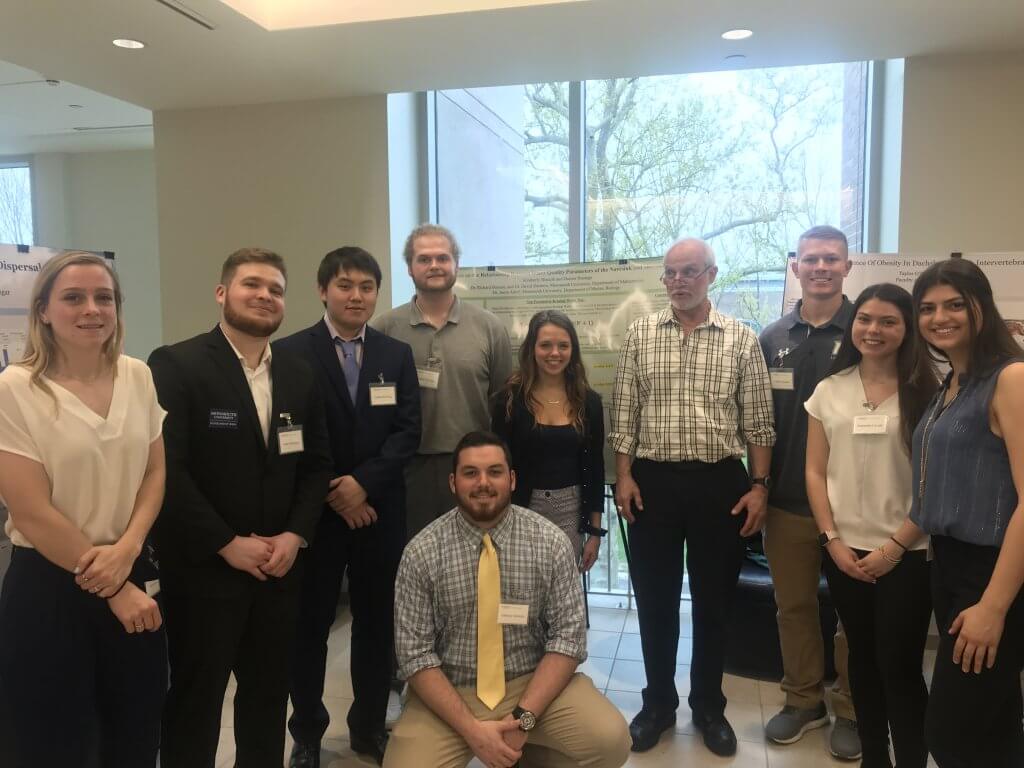
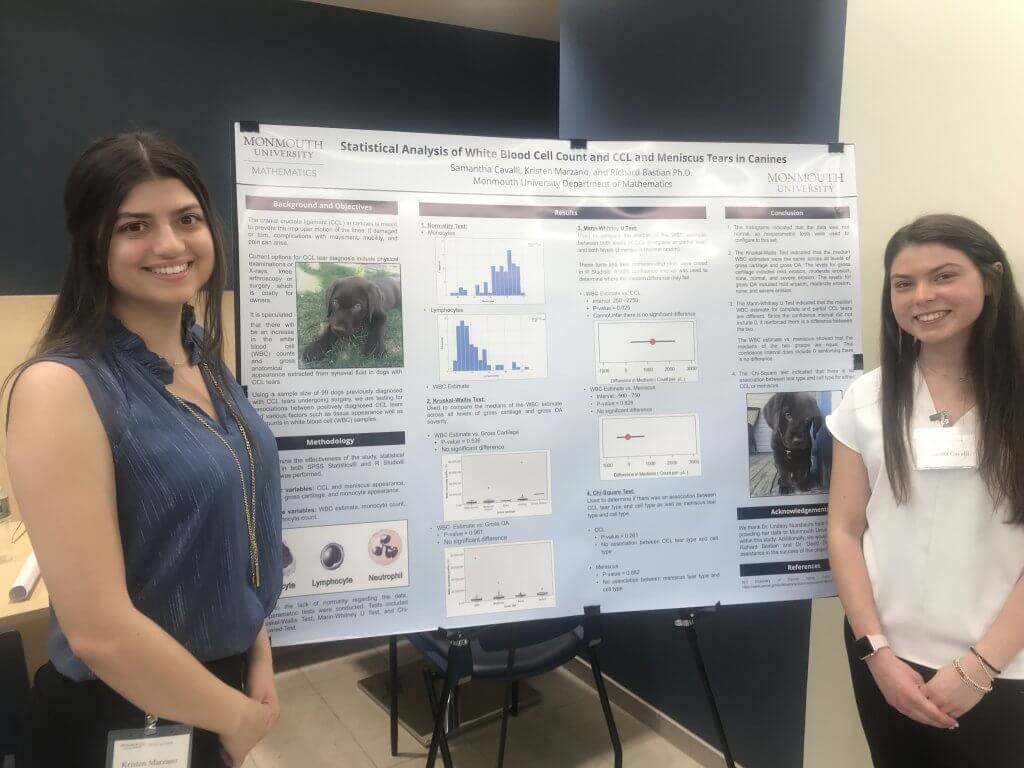
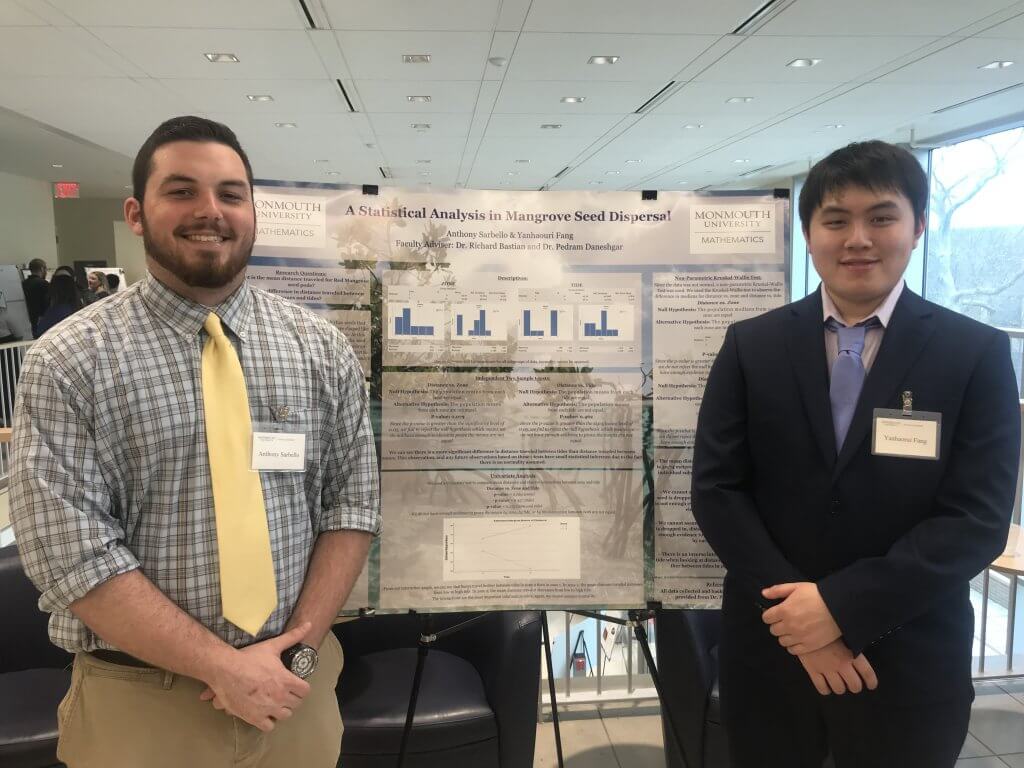
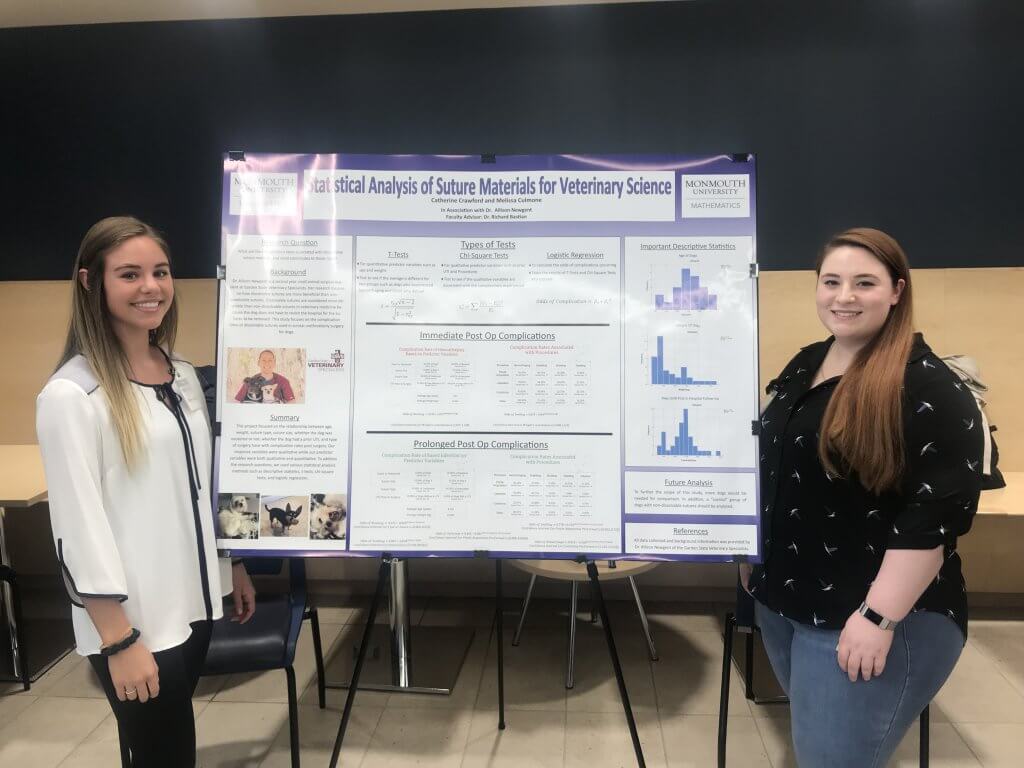
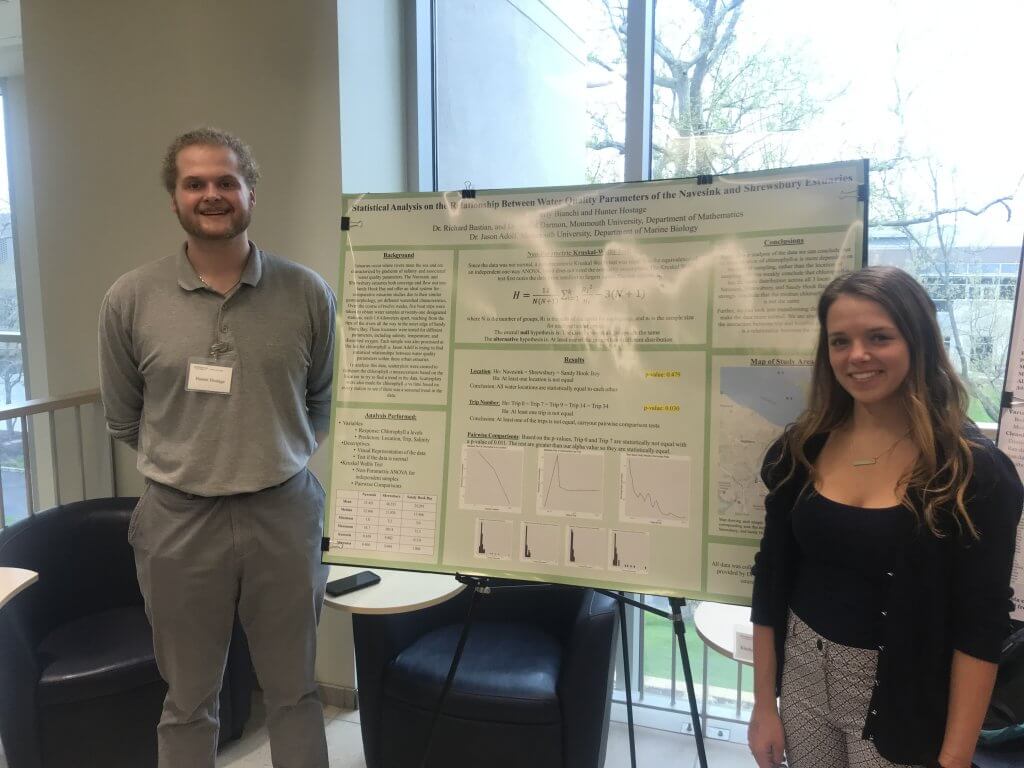
Rodriguez Presents Honors Project
If you spent any time in the math department this past year, you most definitely would have seen senior Nate Rodriguez and his faculty advisor, Dr. Susan Marshall, working at her chalkboard. As one of eight students selected school-wide for the 2018 Summer Scholars Program, Nate spent last June and July living on campus immersed in research on Heronian shapes. Work on the project continued during the school year, until finally he presented his results, an “Exploration of Heronian Shapes,” at the Honors School’s Spring Research Conference on April 26, 2019.
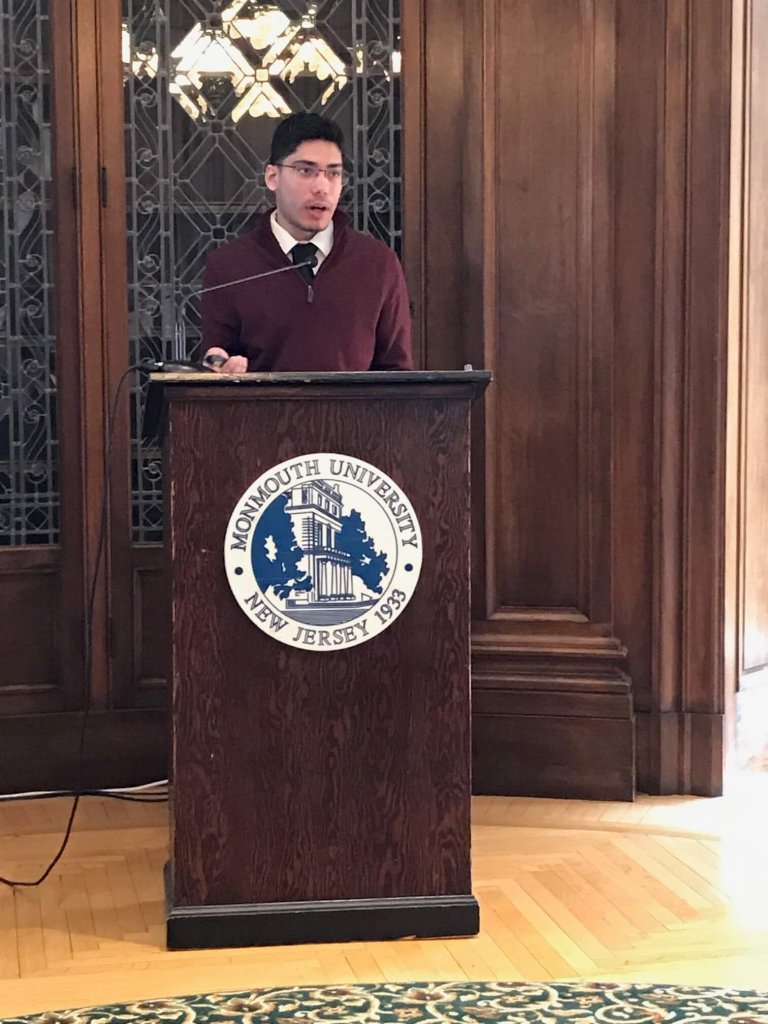
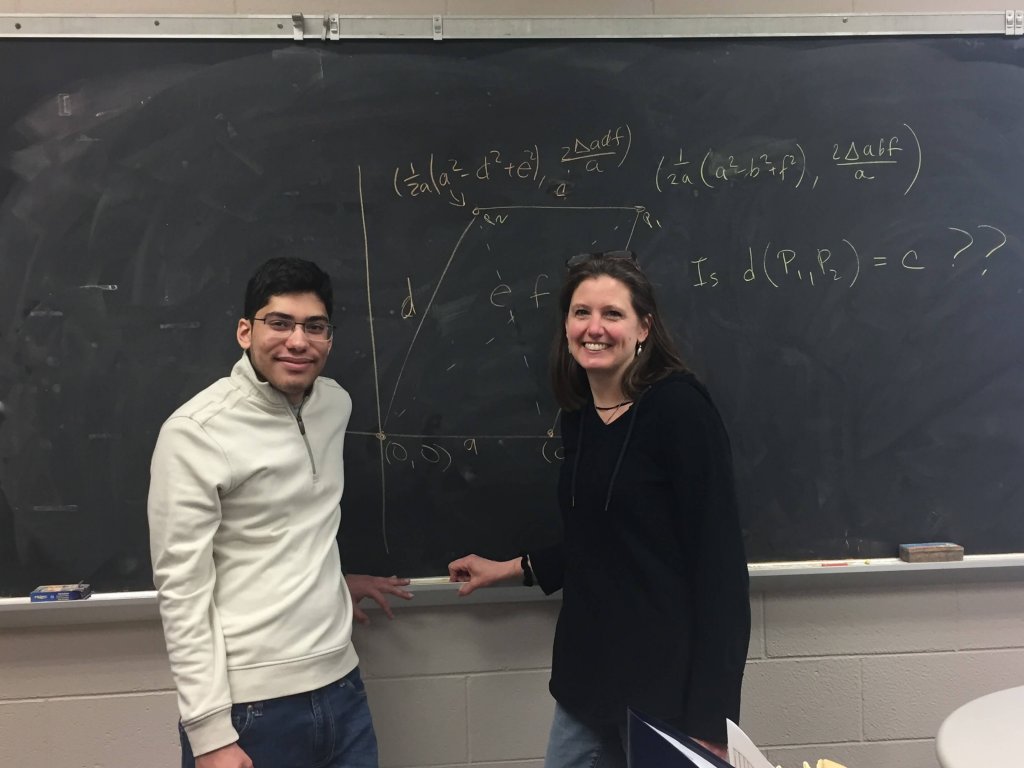
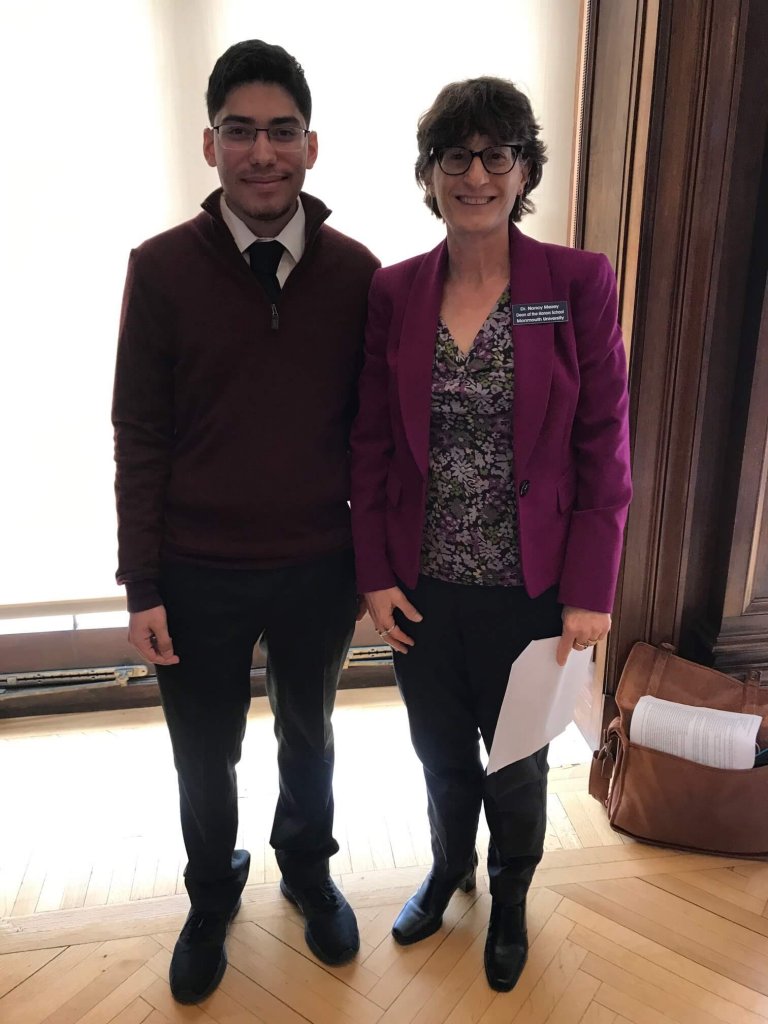
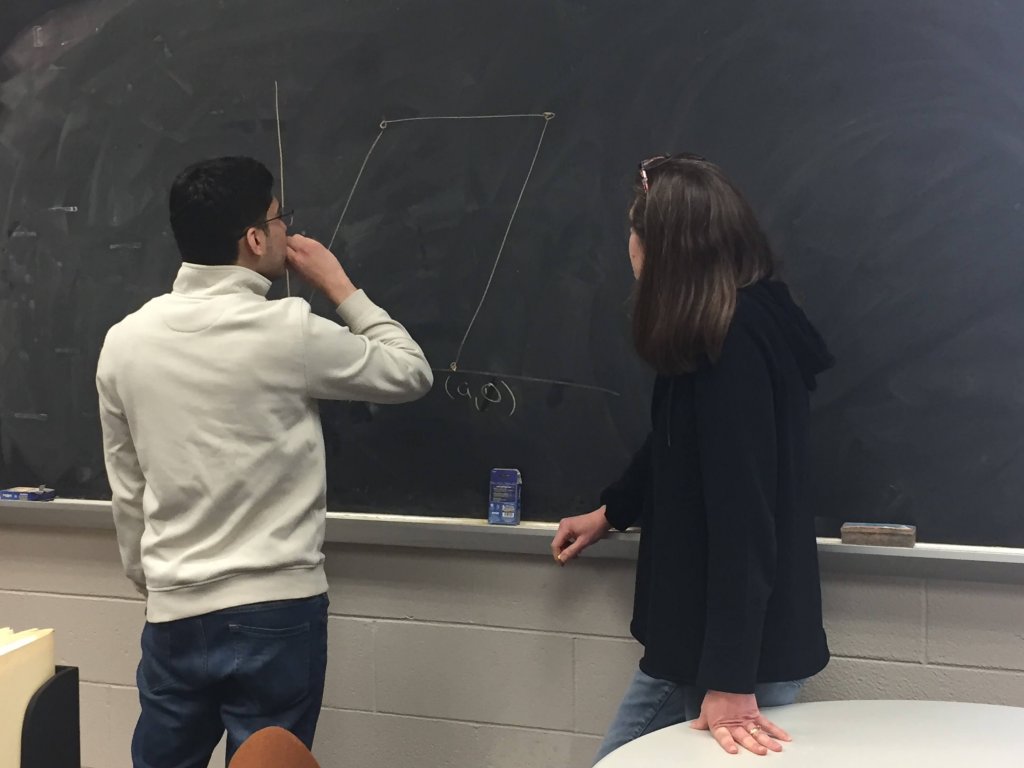
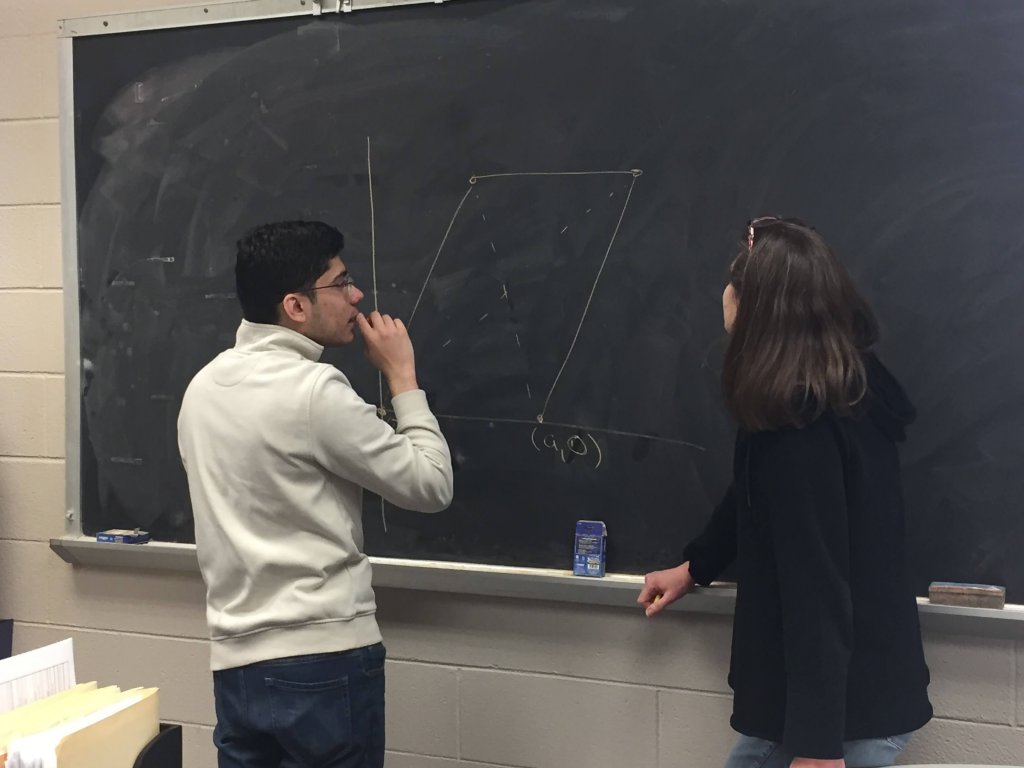
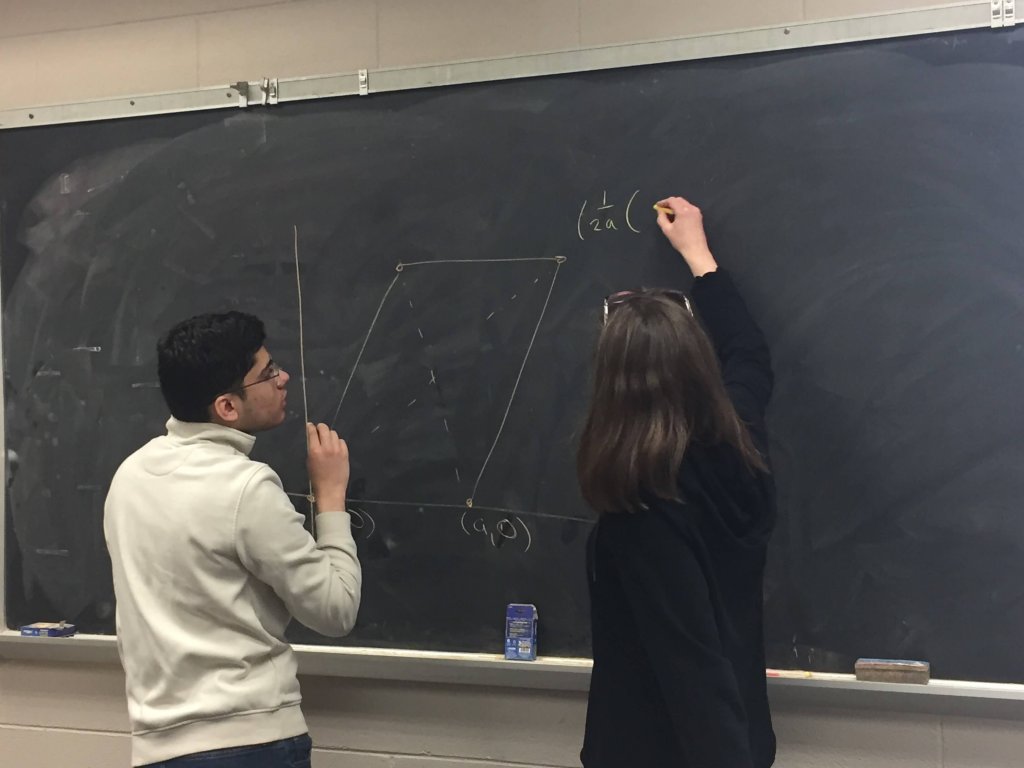
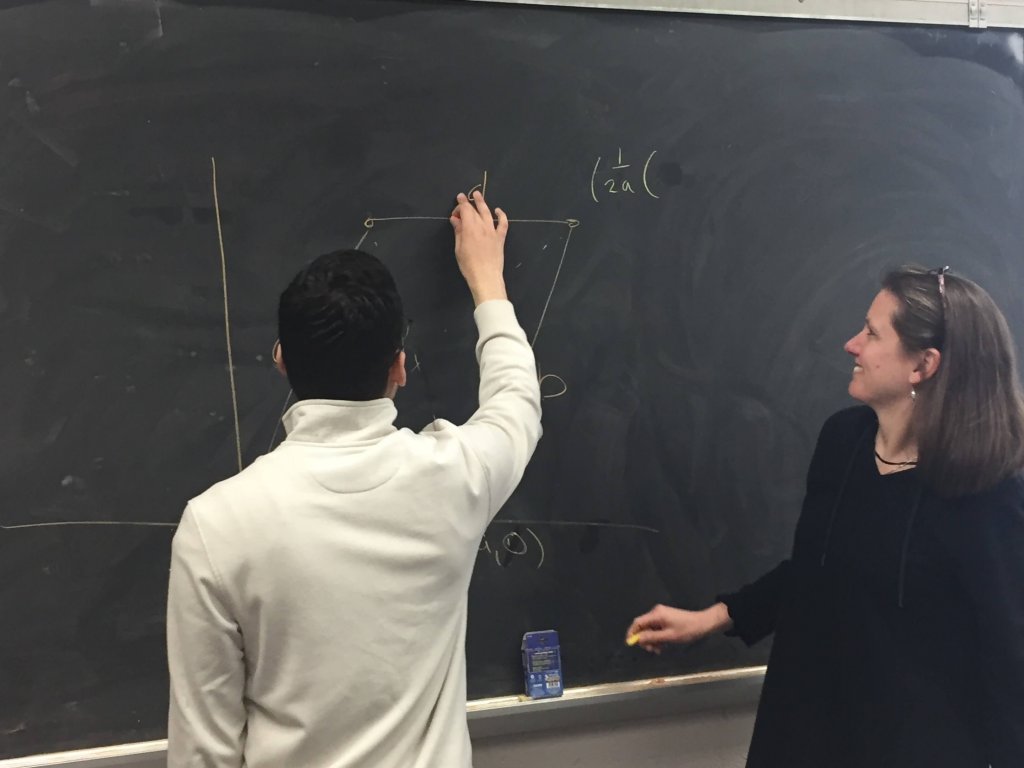
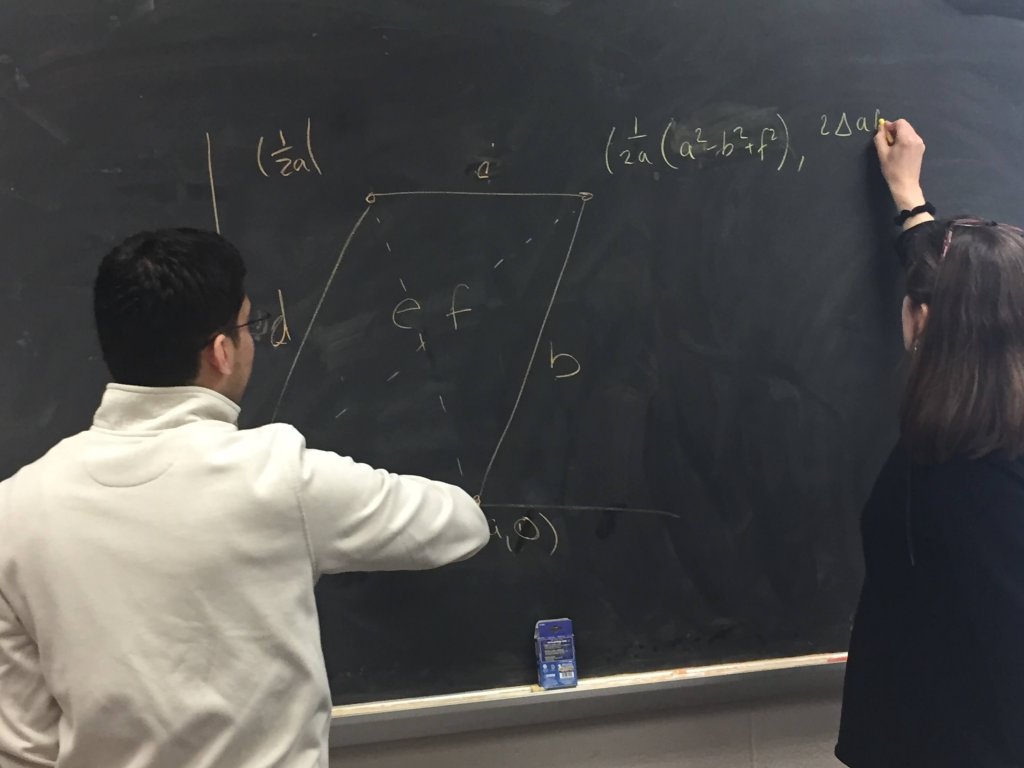
Three Seniors Present Honors Projects
Miranda Halpern, Bryanna Roos, and Matt Vazzana presented their honors projects on December 7, 2018 at the Honors School Research Conference, held in the historic Monmouth University Library. Halpern, a math major and physics minor, worked with physics professors Kayla Lewis and Dmytro Kosenkov on “Two-Phase Flow in a Hydrothermal Vent System.” Roos (Math/Elementary Education) and Vazzana (Math/Secondary Education) worked with Dr. Turner and Dr. Zak, respectively. The title of Roos’ presentation was “A Checklist for Implementing Technology in Elementary Mathematics Classrooms,” while Vazzana shared his knowledge on “Exploration of Lebesgue Integral.” We are extremely proud of these three students!
